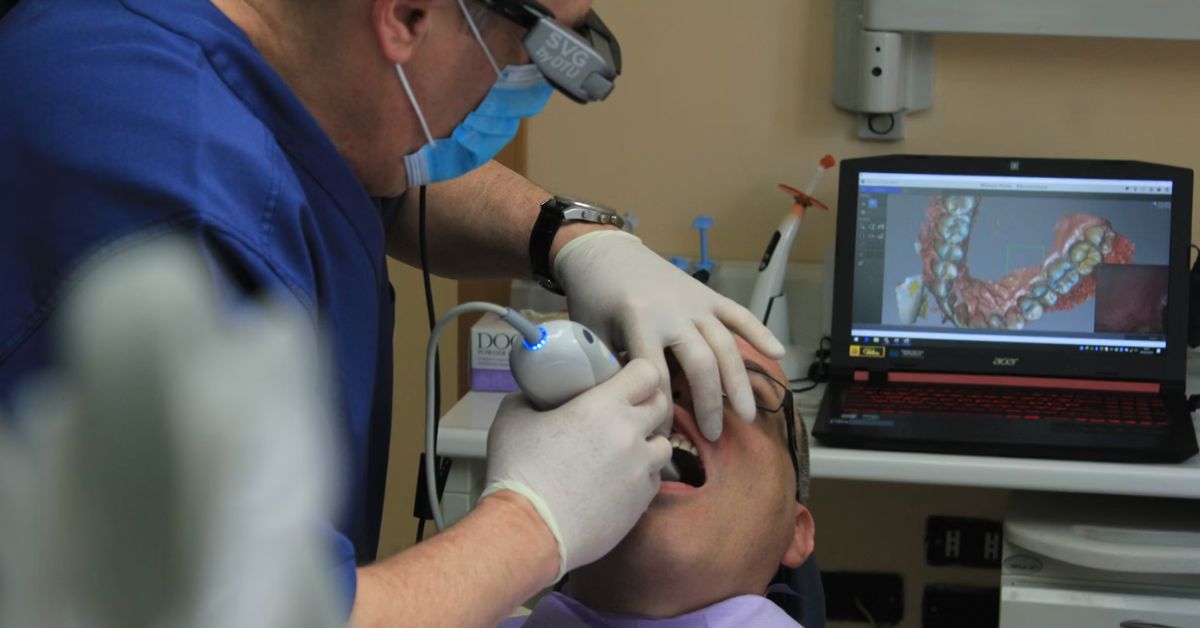Your mouth is a window to your overall health. For adults coping with chronic conditions, this relationship becomes even more important. While managing chronic illnesses like diabetes, heart disease, autoimmune disorders, or even battling addictions, dental health can easily take a backseat.
But we won’t even know when the effects of ignoring oral care start affecting the entire body. Understanding these challenges and taking the right action can transform your oral health, as well as your overall well-being.
How Chronic Conditions and Oral Health Are Connected
Chronic conditions and dental health share an intricate relationship. They influence each other equally. For example, according to the National Institutes of Health, diabetes increases the risk of gum disease. It affects your mouth by changing your saliva, which in its healthy state helps protect tissues in your mouth and fight tooth decay. Inversely, gum infections can worsen blood sugar control.
Another example is that heart disease and autoimmune disorders amplify the chances of inflammation and infections in the mouth, adding to health issues.
Addictions, often an overlooked chronic condition, may also wreak havoc on oral health. Substances like methamphetamine, alcohol, or even prescription drugs like Suboxone contribute to severe dental issues like dry mouth, enamel erosion, and tooth decay.
Oral Health Challenges with Chronic Conditions
Dealing with chronic conditions can also mean facing a unique set of oral health challenges. They demand extra care and attention. Some of the most common issues include dry mouth, gum diseases, enamel erosion, and other infections. Let’s understand each of these in detail.
The Problem of Dry Mouth
Prescriptions for diseases like high blood pressure, depression, or addiction may cause dry mouth, also known as xerostomia. Reduced saliva production leads to diminished natural buffering of the oral pH. This further reduces the natural cleansing of the oral cavity.
This may lead to an increased risk of cavities and gum disease. The problem of dry mouth is more than an inconvenience. It can be the beginning of a long line of dental problems.
Gum Diseases
Gum diseases aren’t limited to swollen gums or bleeding after flossing. For adults with chronic illnesses, it can be the entryway bigger health problems are looking for. For example, diabetes weakens the body’s ability to fight infections. This makes the gums an easy target.
Alternatively, gum disease can become the reason for worsened inflammation. This can be challenging for those with heart disease or autoimmune disorders.
Enamel Erosion and Tooth Decay
For people facing issues like acid reflux, poor diets, or certain medication side effects, enamel erosion can be a constant concern. Dental enamel is the hardest substance in the human body. When this layer wears away, teeth become vulnerable to decay and sensitivity.
Medications like Suboxone, which are commonly prescribed for managing opioid addiction, have been linked to increased dental problems. Since the medicine is highly acidic, it often leads to enamel erosion. The serious side effects have led people to take legal action such as the Suboxone lawsuit.
The lawsuit revolves around allegations that Suboxone has led to dental problems like tooth decay, erosion, and loss, notes TruLaw. The number of cases keeps growing as more people join and anyone who has suffered severe tooth decay after taking Suboxone is eligible to file the suit.
These cases emphasize the importance of transparency in our healthcare system.
Delayed Healing and Infection Risks
For people taking treatments like chemotherapy or coping with autoimmune disorders, healing can be a slow process. In that case, even simple dental procedures like cleaning or extraction can be very discomforting. These procedures also increase the risks of infection.
For efficient healing and recovery, it is best to take a proactive approach to oral hygiene. Here are a few simple steps to help your diamonds get stronger and shining.
3 Simple Steps to Keep Your Oral Health in Check
- Create a Routine
Brush your teeth twice daily with toothpaste containing fluoride. Don’t forget to floss and use a mouthwash. These are the basics and can make a huge difference. According to research, brushing twice a day can reduce the risk of prevalence of chronic conditions related to the circulatory, digestive, and genitourinary systems. - Eat Healthier
Reduce consumption of sugary and acidic foods as they weaken the tooth enamel. You can instead opt for foods rich in calcium and phosphate to strengthen teeth naturally. - Schedule Routine Check-Ups
Schedule routine visits without fail. Regular check-ups help catch symptoms early and prevent unnecessary complications.
These steps may seem too simple or even boring, but they are extremely effective. Remember, it is not complicated methods that get results, but the simpler ones that allow you to be more consistent.
Oral health may not always seem like a priority. We have all been there. But now we know that it is deeply connected with our overall well-being, especially for those managing chronic illnesses. By understanding the challenges and taking the right steps, you can protect your dental health and improve your quality of life slowly but steadily.
Also Read: Nuoilo 12H: The Innovative Solution for Pain Relief



